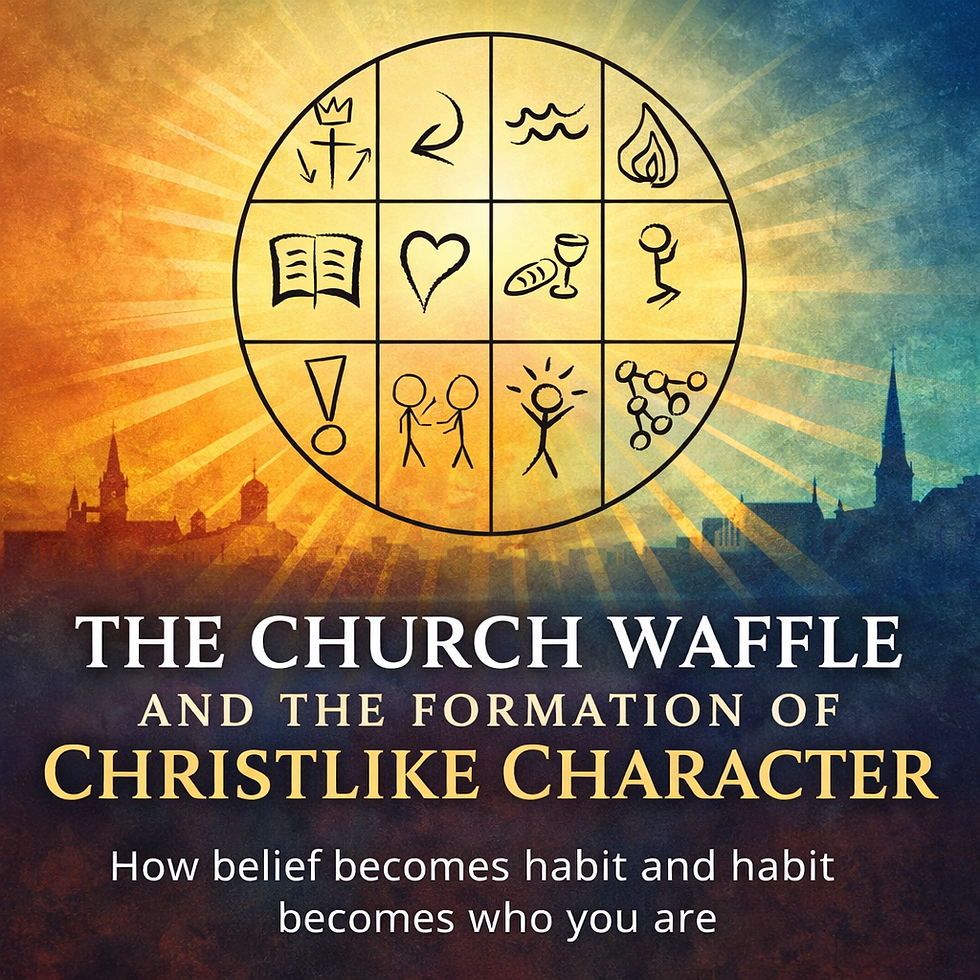Wisdom Is a Journey, Not a Destination: Embracing the Discipline of Proverbs 1:1–7
- Dave Miller

- Jun 2, 2025
- 3 min read
by David Miller

The Call to Seek, Not Settle
Proverbs 1:1–7 opens the door to the entire biblical tradition of wisdom by placing us at the foot of a lifelong path. It’s not a mountaintop to conquer but a trail to walk—step after disciplined step.
Verse 5 gives us the frame:
“Let the wise listen and add to their learning, and let the discerning get guidance.”
That’s surprising if we’re honest. We might expect Solomon to say, “Let the young or the unwise listen,” but he’s clear: even the wise haven’t arrived. If you’re discerning, keep going. If you’re already wise, don’t stop. Wisdom is a choice to be a seeker—a person who walks in disciplined pursuit of understanding.
This passage isn’t about arrival. It’s about identity.
Discipline Is the Way In
Wisdom requires more than just exposure to truth or clever insights—it demands discipline. Repetition. Reflection. Obedience. A willingness to look in the mirror and make corrections.
Verse 3 makes it plain:
“For receiving instruction in prudent behavior, doing what is right and just and fair.”
You don’t stumble into this kind of life accidentally. Wisdom is formed in us through deliberate choices repeated over time. In that sense, discipline isn’t just self-control; it’s the habit-forming pattern that gives wisdom a place to live.
There are two core forms of discipline in life:
Consequential discipline – Learning from the results of poor or good choices.
Habitual discipline – Learning by consistent practice and repetition before the consequences come.
Both are indispensable. But only one prepares you ahead of time.
Fools Want Wisdom Without the Work
The contrast becomes sharp when we see how fools respond to the opportunity to grow.
Verse 7 gives the warning:
“Fools despise wisdom and instruction.”
Why? Because they want the benefit without the cost. Fools ignore consequences, repeating the same patterns without reflection. They crave the reward of wisdom—respect, success, peace—but recoil at the pathway: correction, humility, and hard-earned insight.
A fool might say, “I know what I’m doing,” while careening toward disaster. They may feel the pain but refuse the lesson. That’s not just ignorance—it’s contempt for discipline.
Wisdom and the Fear of the Lord
The final verse of this section centers the journey where it must begin and end:
“The fear of the Lord is the beginning of knowledge…”
This isn’t terror but reverence—a deep awareness of God’s holiness, justice, and goodness that reorients our life. And this is where we turn to Job.
Job was already a righteous and wise man. He feared God and shunned evil. Yet by the end of his trials, God had not only preserved him but expanded his wisdom. How? Not by condemning him, but by deepening his fear of the Lord.
In Job 42:5, Job declares:
“My ears had heard of you but now my eyes have seen you.”
This wasn’t a punishment—it was an invitation. Through suffering and perseverance, Job’s reverence grew. His wisdom journey didn’t end in success; it matured in awe. That’s the destination of every true wisdom seeker—not answers, but deeper fear of the Lord that leads to lasting transformation.
Final Thought: Choose the Path, Not the Prize
Wisdom is not a trophy for the smart or a reward for the old. It’s a trail we choose to walk—marked by discipline, shaped by habit, tested by consequence, and centered on revering God. The wise aren’t those who “got it all figured out.” They’re the ones still listening, still learning, still walking in holy fear.
So whether you’re just beginning or you’ve been walking for years, the invitation is the same:
Don’t stop.
Don’t settle.
Choose wisdom—again.




Comments